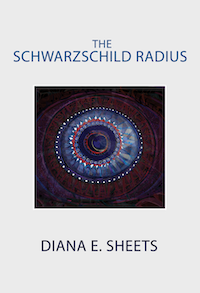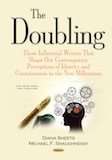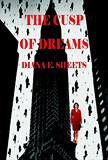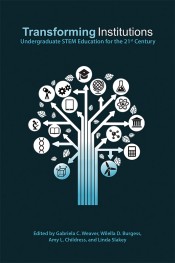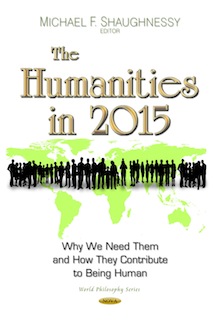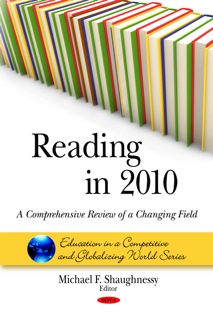The Loss of an Authoritative Culture in America and Its Impact on the Aspirational Middlebrow Reader, Part III
Copyright © 2012 by Diana E. Sheets
VII Macdonald, Greenberg, Kitsch, and the Decline of a Middlebrow Culture
Let us return to our middlebrow reader in order to consider the following: Why was the loss of an authoritative culture so devastating for the aspirational reader and what were the social consequences for America? The ascendancy of the middlebrow reader was nurtured by the “unprecedented range of activities aimed at making literature and other forms of ‘high’ culture available to a wide reading public” in the thirty years following World War I (Joan Shelley Rubin, The Making of Middlebrow Culture, The University of North Carolina Press, 1992, xi). This influence persisted well into the 1960s (See my essay “The Great Books and Cultural Identity”). There was, for instance, the Saturday Review of Literature, a weekly founded in 1924 that targeted the savvy middlebrow reader interested in a broad cross-section of culture. It achieved its greatest circulation was in 1971. Another middlebrow institution is the Book-of-the-Month Club, a subscription-based association created in 1926 that continues to offer readers highly discounted best-selling books. In the new millennium it limps along, undercut at every hand by Amazon, e-books, television, cinema, electronic gaming, text messaging, and the Internet. Then, there is Time Magazine, begun in 1933, which is America’s largest weekly paid news magazine (“2010 Average Total Paid & Verified Circulation for Top 100 ABC Magazines,” The Association of Magazine Media, http://tinyurl.com/6n8dm9d). Lest we not forget there is The New Yorker, established in 1925, which purports to be highbrow. However, as Louis Menand noted recently, Macdonald’s onslaught of attacks on middlebrow culture in the magazine ingeniously “inoculated The New Yorker against accusations of being middlebrow” (“Browbeaten: Dwight Macdonald’s War on Midcult,” Vol. 87, Issue 26, September 5, 2011, 72-78, Database MAS Ultra).
Today, in the age of postmodernism and cultural relativity when money defines social status and “elite cultural values” has derogatory connotations, the “battle of the brows” makes many Americans, including Menand, cringe (“Browbeaten”). But one has only to look back to twentieth century Modernism when cultural knowledge was ascertained by academics and critics as designated for the discerning few, the moral righteousness of aesthetic sensibility was deemed the highest social good rather than a mere byproduct of snobbery and class consciousness.
Thus Clement Greenberg in his article “Avant-Garde and Kitsch,” published in 1939 in Partisan Review, celebrates the avant-garde culture in which “content is to be dissolved so completely into form that the work of art or literature cannot be reduced in whole or part to anything not itself” (“Avant-garde and Kitsch,” http://blog.lib.umn.edu/mulli105/1601fall10/Greenberg-AvGd%26Ktch.pdf, 3). If the contributions of the avant-garde are individualized, unique, a rejection of market capitalism (2), kitsch represents the crass commodification of culture by the rear-guard who are adept at “using for raw material the debased and academicized simulacra of genuine culture” (5). For Greenberg, the style of kitsch may change but its substance, the contamination of our cultural sensibilities, remains the same. It is, Greenberg suggested, “the epitome of all that is spurious in the life of our times” (5) since it demands nothing of us, from us, save for our dollars. For this professed highbrow, any association with cultural drek was excruciating.
Not surprisingly, Greenberg’s essay would be celebrated by those who assumed the self-appointed stature of highbrow reader and prided themselves in their knowledge and appreciative of the avant-garde while nearly everyone of aspirational middlebrow status (neither working class nor lower middle class in their cultural sensibilities)—could delight in his wrathful desecration of kitsch.
As his comrade in arms, Dwight Macdonald was unrelenting. If Midcult (middlebrow culture) was bad, Masscult (mass culture) was worse since “it doesn’t even have the theoretical possibility of being good” (“Masscult & Midcult,” Against the American Grain, Random House, 1962, 3-75, quotation on page 4) since it was manufacturing by “the Lords of Kitsch” (“A Theory of Mass Culture,” Diogenes, http://dio.sagepub.com/content/1/3/1.citation, 13) not for edification but for consumption and, therefore, sought “the least common denominator,” namely, “mass man” as “a solitary atom, uniform with and undifferentiated from thousands and millions of other atoms (“A Theory of Mass Culture,” 14). Consequently, “Masscult offers consumers (they could hardly be designated as discerning customers) neither an emotional catharsis nor an aesthetic experience, for these demand effort” (“Masscult & Midcult,”4-5).
Macdonald’s distain of Midcult caused him to dismiss many reputable literary magazines, including the Atlantic and Saturday Review. The New Yorker, for whom he wrote regularly, was conveniently categorized “betwixt-&-between” (borrowing but reinterpreting Woolf’s judgmental terminology) and thereby spared his contempt (“Masscult & Midcult,” 63). From Macdonald’s perspective Hemingway’s The Old Man and the Sea, saturated in pretentious allegory and “fake-biblical prose,” was Midcult. So too was Thornton Wilder’s Our Town, which was awash in small-town nostalgia reminiscent of Norman Rockwell’s magazine covers for the Saturday Evening Post (41, 43).
Macdonald’s critique of the Great Books was excoriating: its selections were obvious or indicative of committee decree. He expressed satisfaction only with the choice of Moby-Dick by Herman Melville and Psychology by William James. From Macdonald’s perspective the flaws of the Great Books were many: the failure to include an expository apparatus, the omission of scholarly assessments, the inclusion of questionable scientific selections, the excessive reliance on existing translations, the decision to feature entire books rather than judiciously edited selections that might have included some of the singular contributions by lesser known intellects, the inclusion of the unwieldy Syntopicon with its extensive cross references on designated topics in all the works under consideration, the list goes on and on (“The Book-of-the-Millennium Club” The New Yorker, November 29, 1952, http://www.writing.upenn.edu/~afilreis/50s/macdonald-great-books.html).
The critical assumption underlying this woefully misguided review is that—following Virginia Woolf—highbrows do not have their tastes dictated: they make taste. As our cultural mandarins they determine what is read and should be read. Consequently, to instruct that a highbrow read an encyclopedic collection of Great Books implies a gross lapse in the intellectual breadth and depth of a highbrow, a heresy inconceivable to Macdonald.
VIII Conclusion: The Significance of the Middlebrow Reader for the Nurturance of an Aspirational Culture
But what if our readers—high, middle, and low—are not well read? What if they possess little knowledge of our classics? What if Dwight Macdonald, “the Lord Executioner of Middlebrow Culture,” actually condemned the Great Books out of spite—petty snobbery borne by class privilege that predisposed him to dismiss this encyclopedic collection under the guise of entitlement (“No one tells a highbrow what to read!”) and arguments over style (bad translations, old editions, unnecessary books or even the wrong selection) rather than acknowledging the universal value of a canon of great literature that forms the foundation for a universal culture. Macdonald’s wanton dismissal of the Great Books allowed aspirational readers to forego the arduous endeavor of engaging with fifty-four volumes of writings by some of the greatest minds known to Western Civilization, ideas that represented the very foundations of our culture, because this encyclopedic collection was less than perfect.
What the “battle of the brows” never acknowledges is that as readers we begin our lives illiterate. Perhaps at first we are motivated only to understand the label on a soup can or a newspaper headline or the name of a comic book. But curiosity and desire make readers of most of us. We become excited through discovery, wanting to read a biography or understand what motivated the innovations of Newton or curious to comprehend the distinctions between styles of music. Our visual world needs explanation. We hunger for knowledge. What might have started as a banal urge expands in scope and magnitude. What these highbrow critics overlook is that the reader of masscult, the acquirer of kitsch, might change. Aspirational desire transgresses and when it does the stigmas—low, middle, high, mass and midcult, avant-garde, and kitsch—fall away. The pleasure of knowing, of learning, of understanding have the capacity to trump class and status, defying all designated boundaries.
But excellence requires standards. Distinctions—high and low—must be made. They must be free of cant and in pursuit of the good, the true, and the beautiful. Our society must embrace this shared cultural knowledge as the firmament for our historical memory and the basis of our dreams for an aspirational future in which all Americans have the potential to possess the keys to the kingdom of wisdom. Our culture must unite not divide us. This entails excellence; it necessitates authority. Hierarchical judgments must be made in the furtherance of knowledge. We must resist all cultural relativity and nonjudgmental assessments as impediments to our naturally inquisitive minds. As Americans our quest begins with an understanding of Western Civilization and the ideals of the enlightenment and expands ever outward. As humans we accept that our lives are lived from beginning to middle to end. But culturally we transcend our mortality as we navigate away from our narcissistic selves, our grievous identity politics, our understanding of the local, the regional, the national in pursuit of cosmic wisdom in our desire to embrace all that is worthy of knowing. In the process we come to understand that knowledge progresses along a continuum toward the infinite.
The rehabilitation of these dreams, these hopes, these narratives requires a culture of excellence founded on authority that dares to pass judgment on the means for achieving the good, the true, and the beautiful. In our pursuit of the sublime, Literary Gulag urges its readers to renew this journey.


